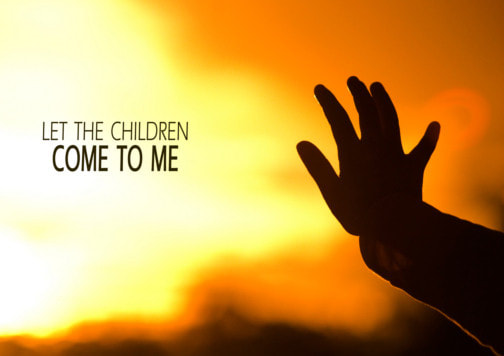Raising kids in today's World is not a cake walk,
especially in the internet age..
But we can help guide our children be prepared...
several years ago when the children were still toddlers I saw screensavers in the theater, now that they are in grade school the unknowns of the internet world combined in today's society and pressures seems like an uphill battle. In these times, We as Christian's should increasingly have spaces and resources, growing our communities to provide safe and wholesome environments for our children- becoming less dependent on the government, mainstream media and societal influences.
SCREENAGERS:
GROWING UP IN THE DIGITAL AGE &
SCREENAGERS NEXT CHAPTER RESOURCES:
https://www.screenagersmovie.com/blog
Raising godly kids in an ungodly world is not impossible.
You and your kids were born for such a time as this,
and understanding God’s heart.
Trying to raise godly kids can feel impossible. Everywhere we turn in our culture, on television, in movies, and now through sexual education in elementary schools, our kids are being told to embrace moral relativism and accept the abnormal and unbiblical as simply a matter of personal choice.
My wife and I were sitting in a theater watching a sci-fi movie. She had her lightly salted popcorn, and I had my Butterfingers box (yes, box). Date nights are awesome. Until they’re not.
Sitting directly in front of us was a young teenage couple making out. They were passionate and utterly oblivious to everything and everyone else. I’m not a prude. Really, I’m not. However, it crosses a line when a couple ignores common decency in public. I was there to watch a movie, not teens fondling each other.
Later, in the same movie (did I mention it was a PG-13 sci-fi and not a romance movie?), there were multiple moments on the ninety-by-thirty-foot screen of inappropriate sexual behavior and sexual innuendos. What truly frustrated me was the number of young kids sitting in the same theater. I remember thinking, When did this all become so “normal” in our culture?
Let’s face it, sexual sin isn’t new. People have crossed the line sexually for thousands of years. However, what is new is how we have an entire generation being indoctrinated to believe that no one—let alone God—gets to define the moral boundaries.
https://rootedministry.com/blog/category/parents/?gclid=EAIaIQobChMIwP6Lz47d-QIVvBbUAR3WHQ-DEAMYASAAEgKRjvD_BwE
What Do Godly Kids Need?
1. Godly Kids Need to Understand Moral Relativism vs Godly Behavior.
Moral relativism is the standard of the day. What’s right or wrong for you is up to you, not me, and certainly not God. The prevailing view regarding moral judgments says something is true or false, right or wrong, only relative to what an individual or culture determines. Sometimes called ethical relativism, it is the theory that actions are only right or wrong depending on the moral norms (i.e., standards) of a society.
The problem with moral relativism is it is immoral. Throughout history, every society that abandons the concept of a moral standard decays into depravity and eventual destruction. No honest student of history can deny this reality.
So, how do you raise kids with a biblical moral compass in a culture that has normalized the abnormal? How do we teach our children that the words of Jesus are the standard for living, not the attitudes of our culture?
2. Godly Kids Need to Learn to Use Jesus’ Words as the Godly Standard
First, talk about the teachings of Jesus regularly. There’s nothing wrong with family devotions, but I have found it far more effective to look for unplanned opportunities to bring up the words and practices of Jesus as a part of everyday life. Use the method of Jesus, who taught, “You have heard it said, but I say to you…” when pointing out how our culture is often in direct contrast with the ways of Jesus
Being the son of a preacher and a pastor myself, I can assure you that preaching to your kids doesn’t work. Trust me. However, blending the practices of the kingdom into everyday life does. Remember, it is the parents’ responsibility to train their children (see Deuteronomy 6:1-9 and Ephesians 6:4), so I encourage you to take your God-given role seriously.
The Importance of ConversationsConversations create a bridge of understanding ungodly vs godly.
Second, talk about cultural issues with your children. Of course, your conversation with a six- year-old will be different than a chat with your teenager. But you must develop a bridge of conversation within your family. The bridge is built over time, and it is created by having intentional discussions about what your kids are seeing and hearing in our broken world.
Again, don’t preach at them, but do ask a lot of good questions.
- What did you think about that scene in the movie?
- How did you feel when that man said to that woman? What do you think Jesus would want you to do in a similar situation?
- Ask clarifying questions such as, So, what did you mean when you said…?
- Furthermore, don’t shame them with a negative reaction either. What? How could you think that?!
Learning the art of asking heart-revealing questions is a skill that takes time and forethought. Keep in mind, it’s always important to genuinely listen to your kids when you ask a question. Please don’t leap from their answers to your doctrinal thesis on the issue.
Communication Builds Trust
Practice the effective communication tool of mirroring back what you think you heard. So, are you saying? Is that what you mean? If your child feels heard, it will go a long way toward building the open relationship you want.
By the way, when you ask a question, your kid may often respond with the classic, I don’t know. That’s fairly common, so give it a moment and restate your question in a non-threatening way. Until this communication bridge is fully developed, and your child feels safe to engage you in conversation, they may often retreat rather than respond. Please don’t push it. Don’t force it. And no matter what they say, don’t react with shock or anger. Every bridge takes time and trust to build.
Years ago, while walking through a mall in Portland, one of my sons giggled at two men holding hands in front of us. I gave him a look that said, snickering is not kind, and he stopped. Then, on the way home, I asked him, “Why did you react to those men? What were you thinking when you giggled?” We ended up having a very open conversation. Thankfully, both of my boys knew they could talk to me about anything, but that aspect of our relationship took time to create and care to maintain.
Here’s one more thing to consider. Please don’t react harshly or unkindly about anyone or anything. Ever. Jesus didn’t.
Of course, teach the truth in love. I am not suggesting you compromise or hold back. You don’t need to worry about political correctness either.
Be clear about biblical standards and impress God’s truth on the hearts of your children without fear.
However, conservative Christian parents are sometimes quick to harshly condemn the ungodly (i.e., we react rather than respond).
Remember…Godly Kids are not Perfect KidsIt’s not helpful to tell your kids with an angry tone. You don’t teach grace and truth when you use derogatory labels in a cruel or hateful way.
Sadly, your children are already exposed to all sorts of sexual sins on a regular basis.
They see it at school, in the mall, on billboards, in movies, and on television. It’s everywhere.
But remember Jesus, who was a friend of sinners. He loved the wrecked without reservation. Teach your children the way of mercy toward others (i.e., show and tell) while helping them to learn how to be unbending in their convictions.
Bear in mind, your goal is not to raise a modern-day Pharisee.
Becoming like Jesus is always the objective. So, help your child learn how to hold on to truth without shunning or shaming.
Final Thoughts on Raising Godly Kids
One last thought to consider . . .
It would be easy, I suppose, to throw up your hands in despair over the brokenness in our world and want to retreat with your family to a Christian commune high in the Rockies. However, we live at a great time in history. We have the incredible opportunity to proclaim the Good News to people desperate for hope.
You and your kids were born for such a time as this. So, raise godly kids, world-changers, who bear His image and bring His light everywhere.
God created the family. His design was for a man and a woman to marry for life and raise children to know and honor Him (Mark 10:9; Malachi 2:15). Adoption is also God’s idea, and He models this in His adoption of us as His children (Romans 8:15, 23; Ephesians 1:5). Regardless of the means by which they enter a family, children are a gift from God and He cares about how they are raised (Psalm 127:3; Psalm 34:11; Proverbs 23:13–14). When God gives us gifts, He also gives clear instructions about their use.
When God led the Israelites out of bondage, He commanded them to teach their children all He had done for them (Deuteronomy 6:6–7; 11:19). He desired that the generations to come would continue to uphold all His commands. When one generation fails to instill God’s laws in the next, a society quickly declines. Parents have not only a responsibility to their children, but an assignment from God to impart His values and truth into their lives.
Several places in Scripture give specific instructions to parents about how to raise their children. Ephesians 6:4 says, “Fathers, do not provoke your children to anger, but bring them up in the discipline and instruction of the Lord.” There are several ways parents might provoke their children to anger. Some parents set impossible standards so that a child despairs of ever achieving them. Some parents tease, ridicule, or humiliate their children as a means of punishment, which does nothing but provoke them to anger. Inconsistency can also provoke to anger as a child is never sure about the consequences of his actions. Hypocrisy provokes children to anger when parents require behavior from children that the parents are not choosing for themselves.
To “bring them up in the discipline and instruction of the Lord” means that parents should train their children the way God trains us. As a Father, God is “slow to anger” (Numbers 14:18; Psalm 145:8), patient (Psalm 86:15), and forgiving (Daniel 9:9). His discipline is designed to bring us to repentance (Hebrews 12:6–11). His instruction is found in His Word (John 17:17; Psalm 119:97), and He desires that parents fill their homes with His truth (Deuteronomy 6:6-7).
He also disciplines His children (Proverbs 3:11; Hebrews 12:5) and expects earthly parents to do the same (Proverbs 23:13). Psalm 94:12 says, “Blessed is the one you discipline, LORD, the one you teach from your law.” The word discipline comes from the root word disciple. To discipline someone means to make a disciple of him. God’s discipline is designed to “conform us to the image of Christ” (Romans 8:29). Parents can make disciples of their children by instilling values and life lessons they have learned. As parents practice godly living and make Spirit-controlled decisions (Galatians 5:16, 25), they can encourage their children to follow their example. Proper, consistent discipline brings a “harvest of righteousness” (Hebrews 12:11). Failure to discipline results in dishonor for both parent and child (Proverbs 10:1). Proverbs 15:32 says that the one who ignores discipline “despises himself.” The Lord brought judgment upon Eli the priest because he allowed his sons to dishonor the Lord and “failed to restrain them” (1 Samuel 3:13).
Children are a “heritage from the Lord” (Psalm 127:3). He places them in families and gives parents guidance in how they are to be raised. The goal of good parenting is to produce wise children who know and honor God with their lives. Proverbs 23:24 shows the end result of raising children according to God’s plan: “The father of godly children has cause for joy. What a pleasure to have children who are wise” (NLT).



 RSS Feed
RSS Feed
























































